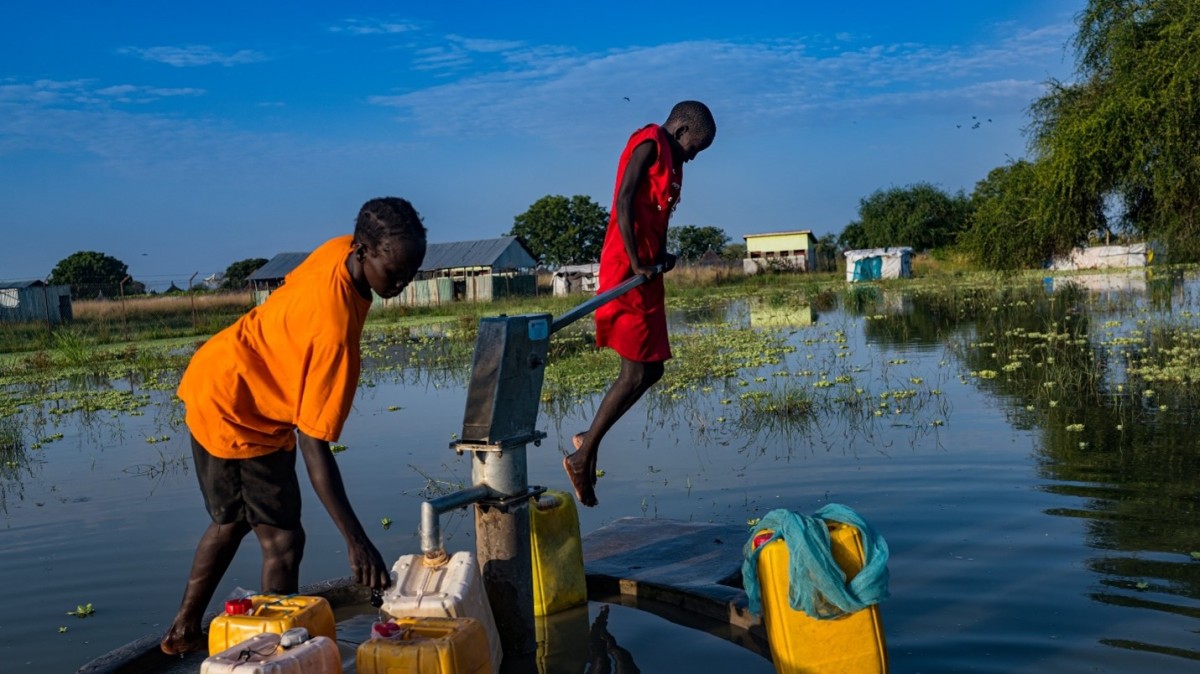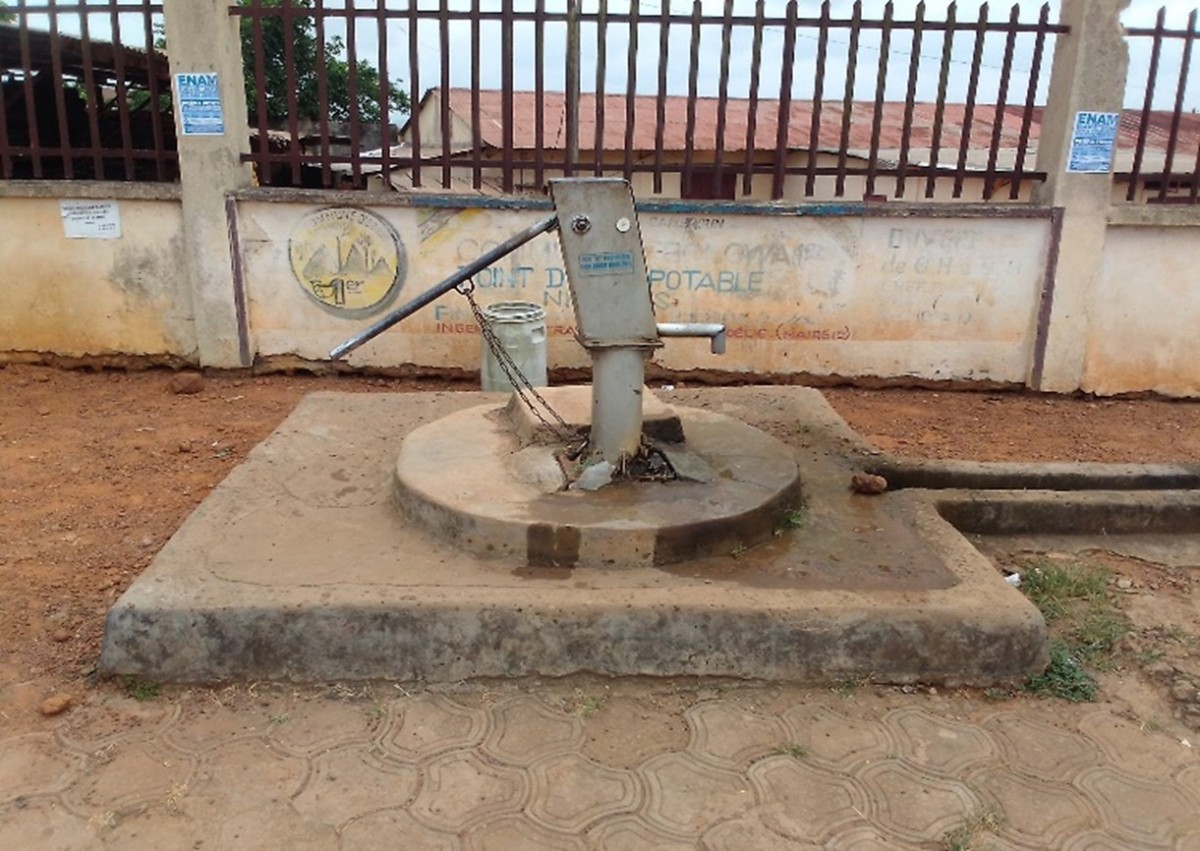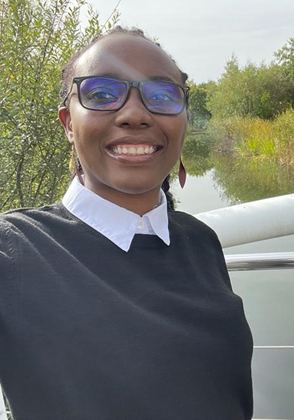Feature image: Ajoh Majur, 12, uses her body weight to activate a handpump. South Sudan, Photo Credit: Lynsey Addario
Blog by Euphresia Luseka, RWSN Leave No-one Behind Theame Leader
The SDG’s commitment to ‘Leave No One Behind’ means acceleration efforts must focus on reaching the most vulnerable groups; this includes children.
African children are born and grow in the climate crisis.
“Present and future generations of children will bear the brunt of the intensifying effects of the climate crisis throughout their lifetime, these impacts are already occurring,” said UNICEF.
UNICEF estimates that one billion children globally are at “extremely high” risk of suffering from impacts of the climate crisis. The need for action has never been more urgent. The climate crisis is a children’s rights crisis.
Since the adoption of the United Nations Convention on Rights of the Child (UNCRC) in 1989, unprecedented gains have been made for children. However, the UN Intergovernmental Panel on Climate Change (2018), Special Report on Global Warming warns the progress risks undermining the escalating climate crisis, which poses an acute threat to children’s survival, development and well-being.
Short-term Thinking as a Triple Threat of Water-Related Crisis is Endangering the Lives of Africa’s Children
On August 2023, the United Nations Committee on the Rights of the Child affirmed children’s right to a clean, healthy and sustainable environment under General Comment No. 26. During the 2023 Human Rights Council the United Nations High Commissioner for Human Rights Mr.Volker Türk, deplored that despite all the alarm bells going off, leaders were still not acting with the determination required and getting “stuck in the short term”.
“If this is not a human rights issue, what is?”, he asked.
Africa is facing a water catastrophe. While the climate and water-related shocks are escalating globally, the risks compound most for children in Africa; 40% of Africa’s population was under 15 years old in 2022. Children in 98 percent of African countries are at the highest risk from a convergence of three water-related threats: Inadequate water, sanitation, and hygiene; Its related diseases; and Climate hazards. This is most acute in the Central African Republic, Chad, Nigeria, Guinea, Somalia, and Guinea-Bissau making West and Central Africa one of the world’s most water-insecure and climate-impacted regions.
Continue reading “African children submit demands to governments to be first and fast to firm up climate change action in the water sector”



